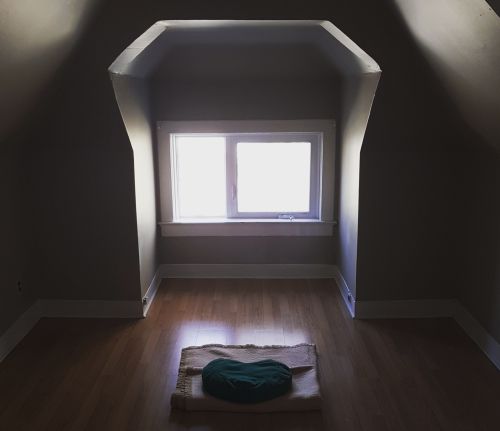You Always Have Zero Time
The feeling of not having enough time doesn’t come from not having enough time. It can’t, because you always have zero time. It comes from the pain of valuing wishes and hopes over intentions, and what happens to you over who you are.

By Capital Thinking • Issue #853 • View online
In my new house the top floor is a single room with gabled walls and a single window that looks out over the street.
I go up there twice daily to meditate for half an hour, so every time I’m in that room I can’t help but think, at least once, about how much time I have left in the day.
You Never Have Time, Only Intentions
During those sessions I’m more aware of my thoughts, and the effect they have on me, than at any other time. And I’ve noticed that the amount of time I have left after my sitting—before I have to be somewhere, or before bedtime—makes a big difference psychologically.
Given what I plan to do for the rest of the day, I always have one of two distinct feelings: I have enough time, or I don’t have enough time.
I’m learning not to trust either of these feelings, because they’re based on an error in perception—when you think about it, and we never really have time. Time we talk about “having” is always in the future, where we can’t see it and don’t know what it will be like.
We can’t be confident it will be there when we need it, or that it will arrive without conditions or unexpected problems.
We never possess time in the same way we possess the money in our wallets, although we talk like we do. We assume we have three hours or three days to do something, but it never actually comes into our possession.
The time we “have” is never where we are, and we can never see it, unlike everything else we have: our clothing, our furniture, our homes, our friends and family. We never know our time like we know those things, so we can’t depend on it like we depend on those things.
The un-ownability of time is a little more obvious when it comes to life expectancy.
I have to occasionally remind myself I don’t have another 40 or 50 years to live. I often expect it, but I never have it.
It’s not mine.
I don’t even “have” one year. I do have this moment, but all the time stretching forward from it is just speculation. We can have intentions, but never time.
This all might sound like the shower-thoughts of a very bored person. What difference does it really make? “Having time” is just a way of speaking, isn’t it?
It’s not just semantics—there’s a tremendous difference between believing you own and control the upcoming three hours, and understanding that you have intentions for it but don’t own it.
Despite your expectations, something could interrupt you, or distract you, or the thing you thought you’d get done is bigger and more complex than you thought, all of which can instantly transmute the comforting feeling of “enough time” to the claustrophobic feeling of “not enough time”.
Your time was never dependable, even if you didn’t realize it. Even if there turn out to be no complications, you can never know there won’t be until the time in question is gone.
Time we think we have is always going to be unreliable in this way, and since we’re constantly depending on this unreliable thing, it’s constantly generating a certain kind of stress, regardless of how any given stretch of time turns out.
Even if you leave early for an appointment, giving yourself an apparent abundance of time, you never quite know if you’ll have enough to avoid the embarrassment of slinking in late.
Anything could happen, and that’s never not true. You can never count on time if you see it as a uniform resource.
But you can know with confidence whether you have enough money to buy a hammer when you get to the hardware store. You do know if you have enough floor to support your breakfast table. You do know if you have enough sweater to keep you warm.
We don’t worry about the reliability of these resources the way we constantly worry about time.
The longer I live, the more I’m convinced that our suffering comes from insisting on more control over our experience than is actually available to us.
When it comes to time, we do this incessantly, by believing we can bank an upcoming afternoon for this or that errand, the way we can earmark an overtime check for a new microwave.

Photo credit: Anthony Tran on Unsplash
